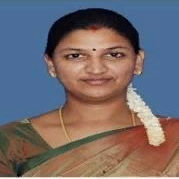International Journal of Image, Graphics and Signal Processing (IJIGSP)
IJIGSP Vol. 9, No. 11, 8 Nov. 2017
Cover page and Table of Contents: PDF (size: 1112KB)
A Double Layered Segmentation Algorithm for Cervical Cell Images based on GHFCM and ABC
Full Text (PDF, 1112KB), PP.39-47
Views: 0 Downloads: 0
Author(s)
Index Terms
Cervical cancer, image segmentation, pre-processing, bio-inspired algorithm
Abstract
Cancer is a life threatening disease and it engulfs the lives of many women. Due to the technology advancement, the medical science is drastically improved. A statistical report claims that the diagnostic decisions of radiologists show more false positive rates, which is very dangerous. However, when the radiologists are supported by computer aided applications, the false positive results are considerably reduced. Understanding the potentiality of computer aided applications, this paper presents a double layered segmentation algorithm for cervical cell images. The entire work is subdivided into three important phases, which are cervical image pre-processing, coarse and fine level segmentation. The pre-processing phase attempts to remove the noise and enhance the image quality by means of adaptive mean filter and Contrast Limited Adaptive Histogram Equalization (CLAHE) technique respectively. The coarse level segmentation process is achieved by Generalized Hierarchical Fuzzy C Means (GHFCM) and the fine level segmentation process is carried out by Artificial Bee Colony (ABC) algorithm. The performance of the proposed segmentation algorithm is analysed in terms of accuracy, sensitivity and specificity. The experimental results show the efficacy of the proposed segmentation algorithm.
Cite This Paper
G. Anna Lakshmi, S. Ravi," A Double Layered Segmentation Algorithm for Cervical Cell Images based on GHFCM and ABC", International Journal of Image, Graphics and Signal Processing(IJIGSP), Vol.9, No.11, pp. 39-47, 2017. DOI: 10.5815/ijigsp.2017.11.05
Reference
[1]https://www.nhp.gov.in/disease/reproductive-system/female-gynaecological-diseases-/cervical-cancer
[2]Neghina M, Rasche C, Ciuc M, Sultana A, Tiganesteanu C. Automatic detection of cervical cells in Pap-smear images using polar transform and k-means segmentation. InImage Processing Theory Tools and Applications (IPTA), 2016 6th International Conference on 2016 Dec 12 (pp. 1-6). IEEE.
[3]Ragothaman S, Narasimhan S, Basavaraj MG, Dewar R. Unsupervised segmentation of cervical cell images using Gaussian Mixture Model. InProceedings of the IEEE Conference on Computer Vision and Pattern Recognition Workshops 2016 (pp. 70-75).
[4]Sharma B, Mangat KK. An improved nucleus segmentation for cervical cell images using FCM clustering and BPNN. InAdvances in Computing, Communications and Informatics (ICACCI), 2016 International Conference on 2016 Sep 21 (pp. 1924-1929). IEEE.
[5]Cheng FH, Hsu NR. Automated cell nuclei segmentation from microscopic images of cervical smear. InApplied System Innovation (ICASI), 2016 International Conference on 2016 May 26 (pp. 1-4). IEEE.
[6]Agarwal P, Sao A, Bhavsar A. Mean-shift based segmentation of cell nuclei in cervical PAP-smear images. InComputer Vision, Pattern Recognition, Image Processing and Graphics (NCVPRIPG), 2015 Fifth National Conference on 2015 Dec 16 (pp. 1-4). IEEE.
[7]Zeng Z, Chen S, Tang S, Yin L. Unsupervised segmentation of cell nuclei in cervical smear images using active contour with adaptive local region fitting energy modelling. InBiomedical Engineering and Informatics (BMEI), 2015 8th International Conference on 2015 Oct 14 (pp. 250-254). IEEE.
[8]Guan T, Zhou D, Fan W, Peng K, Xu C, Cai X. Nuclei enhancement and segmentation in color cervical smear images. InRobotics and Biomimetics (ROBIO), 2014 IEEE International Conference on 2014 Dec 5 (pp. 107-112). IEEE.
[9]Jung C, Kim C. Segmenting clustered nuclei using H-minima transform-based marker extraction and contour parameterization. IEEE transactions on biomedical engineering. 2010 Oct;57(10):2600-4.
[10]Song Y, Zhang L, Chen S, Ni D, Lei B, Wang T. Accurate segmentation of cervical cytoplasm and nuclei based on multiscale convolutional network and graph partitioning. IEEE Transactions on Biomedical Engineering. 2015 Oct;62(10):2421-33.
[11]Alush A, Greenspan H, Goldberger J. Automated and interactive lesion detection and segmentation in uterine cervix images. IEEE Transactions on Medical Imaging. 2010 Feb;29(2):488-501.
[12]Zhang JW, Zhang SS, Yang GH, Huang DC, Zhu L, Gao DF. Adaptive segmentation of cervical smear image based on GVF Snake model. InMachine Learning and Cybernetics (ICMLC), 2013 International Conference on 2013 Jul 14 (Vol. 2, pp. 890-895). IEEE.
[13]Krishnan N, Sujatha SN. Segmentation of cervical cancer images using active contour models. InComputational Intelligence and Computing Research (ICCIC), 2010 IEEE International Conference on 2010 Dec 28 (pp. 1-8). IEEE.
[14]Kale A, Aksoy S. Segmentation of cervical cell images. InPattern Recognition (ICPR), 2010 20th International Conference on 2010 Aug 23 (pp. 2399-2402). IEEE.
[15]Tang JR, Isa NA, Ch'ng ES. Segmentation of cervical cell nucleus using Intersecting Cortical Model optimized by Particle Swarm Optimization. InControl System, Computing and Engineering (ICCSCE), 2015 IEEE International Conference on 2015 Nov 27 (pp. 111-116). IEEE.
[16]Sajeena TA, Jereesh AS. Automated cervical cancer detection through RGVF segmentation and SVM classification. In Computing and Network Communications (CoCoNet), 2015 International Conference on 2015 Dec 16 (pp. 663-669). IEEE.
[17]Andono PN, Purnama I, Hariadi M. UNDERWATER IMAGE ENHANCEMENT USING ADAPTIVE FILTERING FOR ENHANCED SIFT-BASED IMAGE MATCHING. Journal of Theoretical & Applied Information Technology. 2013 Jun 30;52(3).
[18]Dhariwal S. Comparative analysis of various image enhancement techniques. International Journal of Electronics & Communication Technology (IJECT). 2011 Sep;2(3):91-5.
[19]Kumar R, Suman HS. Comparative study of CLAHE DSIHE & DHE schemes. International Journal of Research in Management, Science & Technology.;1(1).
[20]Karayiannis, Nicolaos B. "Generalized fuzzy c-means algorithms." Fuzzy Systems, 1996., Proceedings of the Fifth IEEE International Conference on. Vol. 2. IEEE, 1996.
[21]Pedrycz, A. & Reformat, M. Hierarchical FCM in a stepwise discovery of structure in data, Soft Computing, vol.10, no.3, pp: 244-256, 2006.
[22]Suman Shrestha, Image denoising using new adaptive based median filter, Signal & Image Processing : An International Journal, Vol.5, No.4, pp.1-13, 2014.
[23]S. Chen and D. Zhang, Robust image segmentation using FCM with spatial constraints based on new Kernel-induced distance measure, IEEE Transactions on Systems, Man and Cybernetics 34(4) (2004), 1907–1916.
[24]D. Pham and J.L. Prince, An adaptive fuzzy c-means algorithm for image segmentation in the presence of intensity inhomogeneities, Pattern Recognit Lett 20 (1999), 57–68.
[25]Yuhui Zheng, Byeungwoo Jeon, Danhua Xu, Q.M. Jonathan Wu and Hui Zhang, Image segmentation by generalized hierarchical fuzzy C-means algorithm, Journal of Intelligent & Fuzzy Systems 28, 961–973, 2015.
[26]D. Karaboga, An idea based on honey bee swarm for numerical optimization, Technical Report-TR06, Erciyes University, Engineering Faculty, Computer Engineering Department, 2005.
[27]Dervis Karaboga, Beyza Gorkemli, Celal Ozturk, Nurhan Karaboga, A comprehensive survey: artificial bee colony (ABC) algorithm and applications, Artif Intell Rev, 2012.
[28]Dervis Karaboga, Celal Ozturk, A novel clustering approach: Artificial Bee Colony (ABC) algorithm, Applied Soft Computing 11 (2011) 652–657.
[29]http://mde-lab.aegean.gr/index.php/downloads

